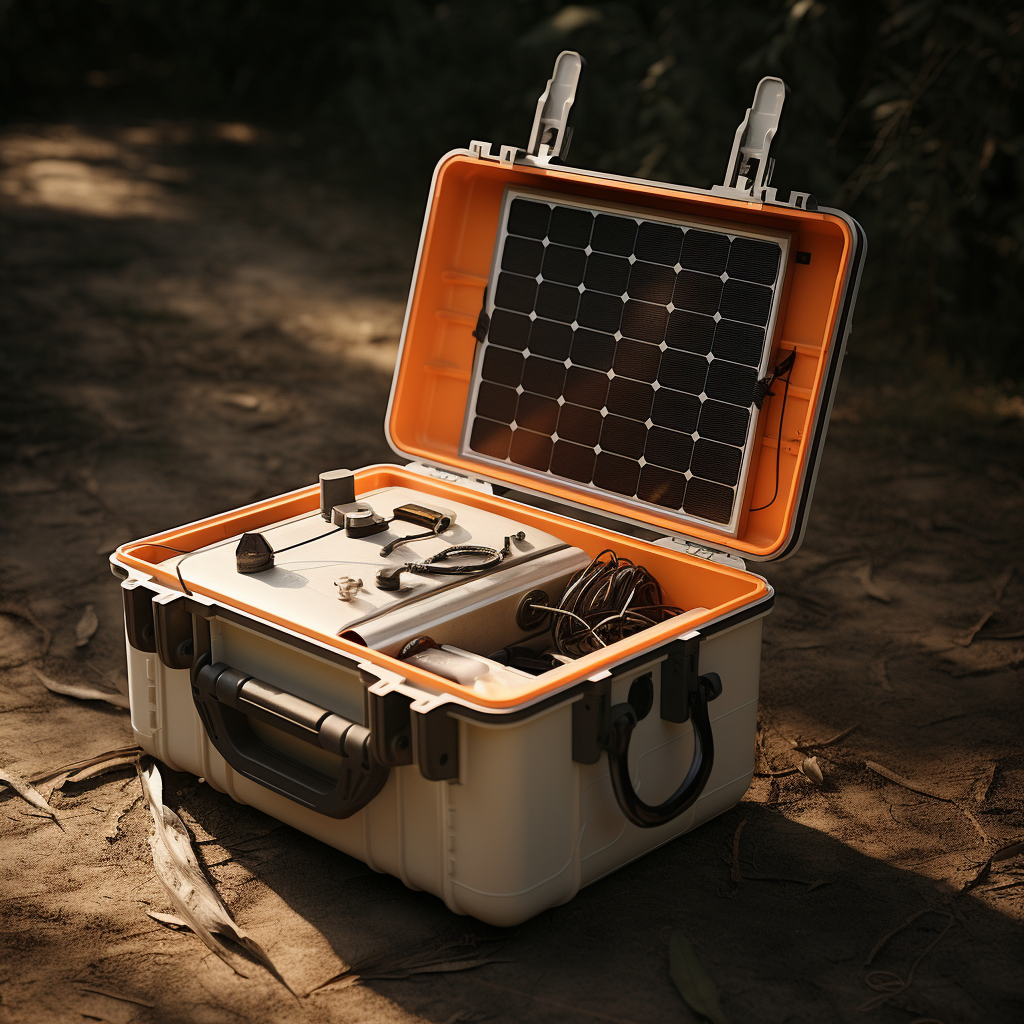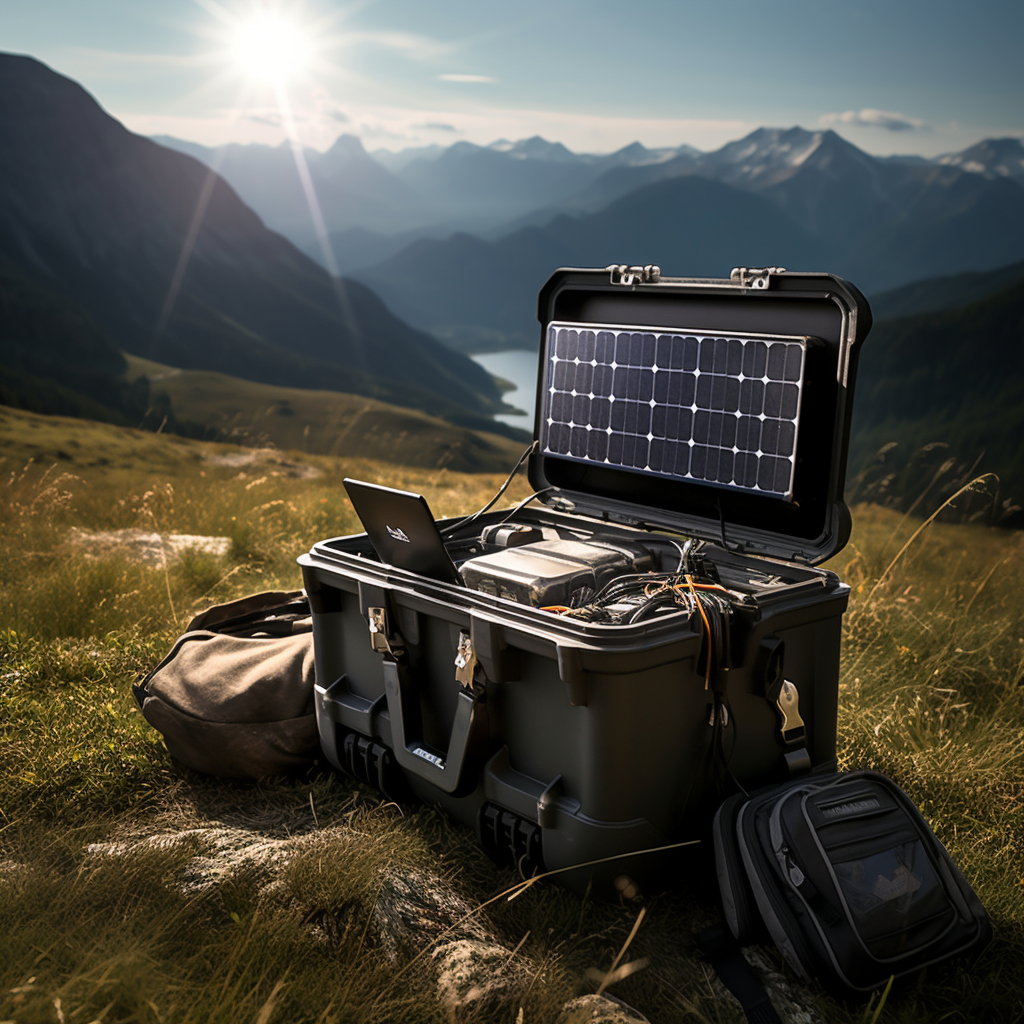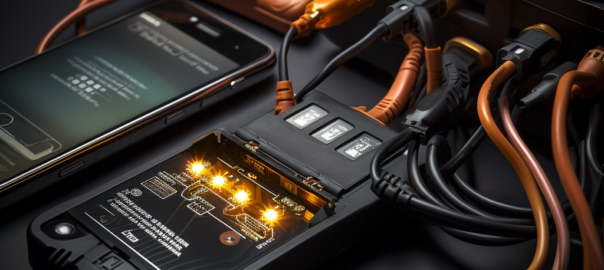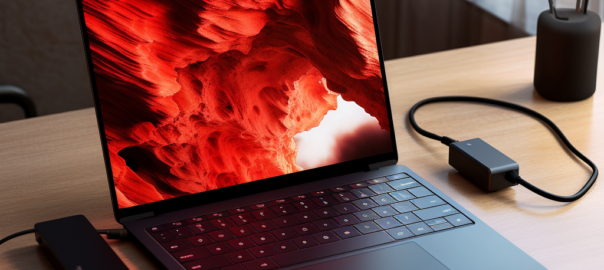With the growth in renewable energy technology and increasing occurrences of power outages, portable solar generators have surged in popularity in recent years. Portable solar generators provide clean, quiet power anywhere the sun shines. They allow you to harness the power of the sun to run appliances, charge devices, and even power your home during utility grid failures.
In this comprehensive guide, we’ll explore what portable solar generators are, their key benefits and features, how to size and estimate your power needs when buying one, the top recommended models and brands, and frequently asked questions to help you determine if investing in a solar generator is right for your needs.
Contents
- 1 What is a Portable Solar Generator?
- 2 Benefits of Portable Solar Generators
- 3 Key Features to Look for When Buying a Portable Solar Generator
- 4 Top Uses for Portable Solar Generators
- 5 Sizing and Estimating Your Power Needs
- 6 Top Brands and Product Recommendations
- 7 Frequently Asked Questions
- 8 Conclusion
What is a Portable Solar Generator?
A portable solar generator is a renewable energy system that combines solar panels, a charge controller, battery storage, and an inverter to convert sunlight into usable AC power for running appliances, tools, medical devices, and more. The components are housed in a contained unit with handles for easy transport and mobility.
Here’s a quick overview of how portable solar generators work:
- Solar panels: The solar panels absorb sunlight and convert it into DC (direct current) electricity. They act as the power source for the system.
- Charge controller: The charge controller regulates the voltage and current coming from the solar panels to safely charge the batteries. It prevents overcharging.
- Battery storage: The energy from the solar panels charge a bank of internal batteries. Lithium-ion batteries are most common for their high efficiency, fast charging, and lightweight.
- Inverter: The inverter is a crucial component that transforms the DC power stored in the batteries into standard 120V AC (alternating current) power that you can use to run appliances.
The all-in-one, integrated design makes portable solar generators extremely versatile power sources you can take anywhere. They range in size from compact briefcase designs to larger rollable units on wheels. The battery capacities, solar panel wattages, and power outputs also vary widely depending on the model and your intended uses.

Benefits of Portable Solar Generators
There are many reasons to consider adding a solar generator to your renewable energy toolkit:
Clean, renewable power anywhere the sun shines: The solar panels provide emissions-free, renewable energy from the power of the sun. You avoid the noise and fumes associated with gas generators.
Reduced reliance on the electrical grid: Solar generators allow you to tap into the sun’s energy to run essential appliances during utility power outages. The more you use solar, the less you’ll need to depend on the grid.
Backup emergency power: Portable solar generators offer backup electricity to keep your fridge, medical devices, and other necessities powered up when the power goes down.
Off-grid power capabilities: Solar generators allow you to access electricity for off-grid trips, camping, tailgating, overseas travel, and other applications removed from electrical infrastructure.
Portability and mobility: The integrated, compact designs allow you to easily transport your solar power source for uses anywhere – at home, in your RV, cabin, boat, and more.
Key Features to Look for When Buying a Portable Solar Generator
There are several key specifications and features to evaluate when selecting the best portable solar generator for your needs and budget:
Solar panel wattage: The higher the solar panel wattage, the faster the generator can charge in full sunlight. Models range from 50W to over 350W.
Battery capacity: Expressed in watt-hours (Wh), the battery capacity determines how long the solar generator can run appliances before needing a recharge. Capacities span 500Wh to over 2000Wh.
Inverter wattage: The power of the inverter determines the size of appliances and devices you can run. Inverter wattages vary from 150W to 3000W on high-capacity models.
Outputs: All solar generators have standard 120V AC outlets. Look for additional USB ports, 12V DC outlets, and RV plugs to power more devices.
Weight and portability: Look for manageable weights under 50 pounds, carrying handles, and wheels if you’ll be transporting frequently. Waterproofing is also useful.
When evaluating options, it’s helpful to make a list of the items you intend to power and total their wattages to determine the appropriate solar panel and inverter sizes. Having some buffer is also wise.

Top Uses for Portable Solar Generators
With so many great features, portable solar generators empower you with renewable energy for:
Camping and RVing: Quietly run fans, lighting, refrigerators, and phones/laptops day or night without needing shore power.
Emergency preparedness: Keep essential medical devices, refrigerated foods, and communications running during power failures at home or in natural disasters.
Outdoor events/concerts: Avoid noisy, smelly generators and keep your gear powered up anywhere – at festivals, tailgates, concerts, and more.
Off-grid cabins and homes: Those living off-grid depend on solar power. Solar generators provide backup power for occasional uses.
Overseas travel: Solar generators allow you to charge devices and run small appliances without electrical infrastructure or adapters.
There are almost endless applications for portable solar power in work, leisure, and everyday life!
Sizing and Estimating Your Power Needs
To select the best portable solar generator, it’s important to assess your power requirements so you don’t under-size or overpay. Here are some tips:
- Make a list of items you want to run and their wattages. Total up the average load.
- Estimate your expected hours of use per day. Size the battery capacity accordingly.
- Determine the highest peak power draws, like motor startup surges, and size the solar panels and inverter above that level.
- Consider future expansion. It’s smart to add some buffer to your sizing estimations.
- Use a solar generator sizing calculator to determine the right system specs.
Undersizing your generator can lead to overload and equipment damage. But oversizing adds unnecessary costs. Take time to adequately assess your usage and power needs.
Top Brands and Product Recommendations
With many brands entering the portable solar generator market, here are some of the best models on the market to consider:
Goal Zero Yeti Series: Goal Zero is an industry leader. The Yeti 1500X and Yeti 3000X models offer excellent power and runtime capacities.
Jackery Explorer 1500: This is Jackery’s highest capacity model with tremendous solar charging capabilities and runtime.
Anker 757 PowerHouse: The Anker 757 gets excellent reviews as a more budget-friendly alternative with decent power and portability.
Bluetti AC300: For heavy-duty off-grid solar power, the Bluetti AC300 is one of the highest quality inverter generators available.
Ecoflow Delta: The Ecoflow Delta features fast charging and the capacity to daisy chain batteries together for extended runtimes.
Westinghouse iGen2200: This is a great entry-level inverter generator that’s super portable and affordable.
Do your research to find the best balance of your power needs and budget. Read solar generator reviews andsafety certifications. Take advantage of seasonal sales when making your purchase.
Frequently Asked Questions
How long do solar generator batteries last? With proper care and usage, expect around 500 charge cycles before seeing battery degradation. Lifespans vary based on battery chemistry and quality.
How do you recharge a portable solar generator? Use the integrated solar panels by placing in direct sunlight. You can also recharge from wall outlets, car outlets, or separate solar panels.
Can you fly with portable solar generators? Yes, most meet airline requirements for checked and carry-on lithium batteries when kept under 300Wh capacity. Check your airline’s policies.
Are solar generators loud? Solar generators produce very little noise – unlike gas generators. Expect fan hum at higher loads. Otherwise, they charge and run extremely quietly.
Do solar generators require maintenance? Require minimal maintenance beyond battery care best practices. Check connections, clean dust from solar panels, and ensure firmware is updated.
Conclusion
Portable solar generators provide clean, versatile renewable power for numerous applications from outdoor adventures to home backup. Consider your expected uses and power load requirements when selecting a solar generator. Top brands like Goal Zero, Jackery, and Anker offer quality options to keep you powered anywhere. With smart sizing and usage, a portable solar generator can deliver years of sustainable solar electricity.










